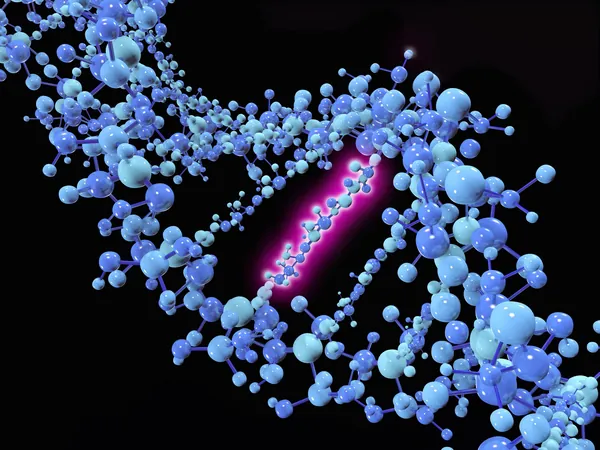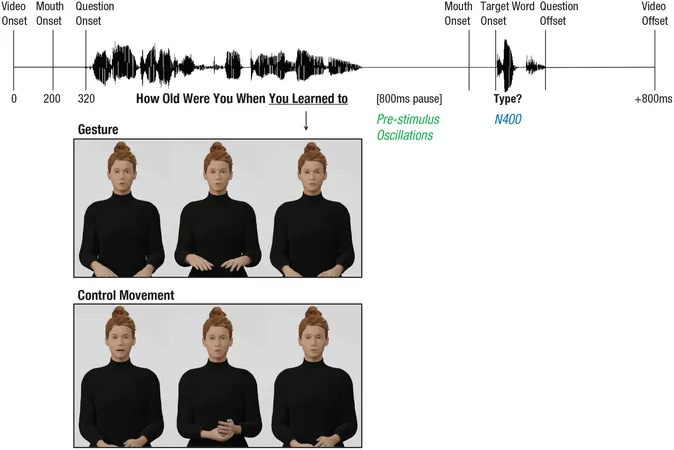
Reassuring Study Reveals Patients with Cancer-Linked Mutations Face No Higher Death Risk
2025-04-09
Author: Daniel
Groundbreaking Findings Offer Hope to Cancer Patients
A large-scale study from the U.S. has unveiled encouraging results for patients harboring inherited mutations in key cancer-related genes. Specifically, those with pathogenic variants (PVs) in the ATM, CHEK2, or PALB2 genes exhibit no increased risk of mortality from breast, colorectal, or pancreatic cancers compared to their genetically tested peers.
The findings, published in the Journal of Clinical Oncology, could significantly influence how doctors discuss prognosis with their patients. Dr. Christine Veenstra, an associate professor of hematology/oncology at the University of Michigan, emphasized the growing importance of germline genetic testing in cancer management. This testing is essential for identifying inherited PVs that can drastically shape treatment strategies, monitoring approaches, and inform relatives of potential risks.
Understanding the Impact of Genetic Variants
Veenstra and her team explained that mutations in ATM, CHEK2, and PALB2 account for about 3% of breast cancer cases and nearly 50% of clinically significant PVs identified via genetic testing. Nevertheless, limited data exists on how these specific mutations affect cancer mortality rates.
"As the genetic testing landscape expands, it's crucial for both patients and clinicians to grasp the full implications of these results," Veenstra stated to Inside Precision Medicine. Patients are understandably concerned about how their genetic findings might impact their survival odds, while clinicians require clear guidance for effective counseling.
The Study: An Extensive Analysis of Patient Data
To explore this issue, Veenstra and her colleagues analyzed data from the Surveillance, Epidemiology, and End Results (SEER) programs in Georgia and California, tracking nearly 80,000 adults diagnosed with breast, colorectal, or pancreatic cancer between 2013 and 2019. Every participant had completed germline genetic testing at one of four specialized laboratories, allowing for a comprehensive dataset they refer to as SEER-GeneLINK.
Their rigorous statistical analysis revealed that individuals with ATM, CHEK2, or PALB2 mutations did not experience significantly different mortality rates from those without these mutations during an average follow-up period of 3.9 years.
A Silver Lining: Reduced Risks in Other Genetic Markers
Notably, the only mutations correlated with differing mortality risks were found in the BRCA1/2 genes and Lynch syndrome markers. These cases showed about a 30% lower risk for mortality linked to triple-negative breast cancer and colorectal cancer, respectively, attributed to enhanced treatment responses.
Looking Ahead: The Need for Further Research
Veenstra highlighted a potential limitation: the relatively short follow-up period, especially for cancers that might recur years later, such as hormone receptor-positive, HER2-negative breast cancer. "While we don’t foresee major changes in these findings, extended follow-up will be invaluable," she acknowledged. Future research will leverage the unique SEER-GeneLINK dataset to explore cancer-linked mutations across various types as knowledge in this field evolves.
"This dataset is unparalleled, facilitating critical studies like this one," Veenstra added, promising that ongoing analyses will yield further insights as more mutations are identified.



 Brasil (PT)
Brasil (PT)
 Canada (EN)
Canada (EN)
 Chile (ES)
Chile (ES)
 Česko (CS)
Česko (CS)
 대한민국 (KO)
대한민국 (KO)
 España (ES)
España (ES)
 France (FR)
France (FR)
 Hong Kong (EN)
Hong Kong (EN)
 Italia (IT)
Italia (IT)
 日本 (JA)
日本 (JA)
 Magyarország (HU)
Magyarország (HU)
 Norge (NO)
Norge (NO)
 Polska (PL)
Polska (PL)
 Schweiz (DE)
Schweiz (DE)
 Singapore (EN)
Singapore (EN)
 Sverige (SV)
Sverige (SV)
 Suomi (FI)
Suomi (FI)
 Türkiye (TR)
Türkiye (TR)
 الإمارات العربية المتحدة (AR)
الإمارات العربية المتحدة (AR)